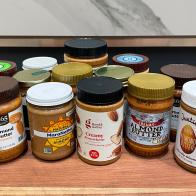Should You Really Be on the Carnivore Diet?
I hope you already know the answer to this one.

hedidwhat/Getty Images
Low-carb, high-fat-and-protein diets are nothing new. The Atkins diet has been popular for decades, and these days it feels like we all know at least one person who’s trying keto. For years, these diets have been considered restrictive and near-impossible to follow, because eating primarily animal protein, dairy products, nuts, oils and non-starchy vegetables is hard!
But then, someone out there decided to kick things up a notch and eat an even more restrictive, lower-carb, higher-protein diet — one that tells you to eat nothing but animal products. That means no fruits, vegetables or plant-based foods of any kind. Even most dairy products, like milk and yogurt, are excluded because they contain too little fat and too many carbs.
Unsurprisingly, the no-fruits-and-vegetables rule raises a huge red flag in the eyes of healthcare professionals, and the extreme rigidity and lack of variety in the diet lead most people to write it off completely. But still, carnivore diet devotees swear by the regimen, and social media is full of carnivore diet “recipes.” (I can’t bring myself to link them here because they’re absurd, but think “carnivore crack” that looks like peanut brittle but is actually just melted brown butter frozen on a sheet pan with bits of bacon inside, and “bread cheese” that’s made by cutting big squares of cheese, pan-frying them, and then using two of them instead of bread slices to make a sandwich filled with meat.)
If all the carnivore diet talk has you curious, here’s what you need to know.

Rodrigo Ruiz Ciancia/Getty Images
How did the carnivore diet get so popular?
“Many people learn of the carnivore diet after initially trying or learning about the keto diet,” says Wendi LeBrett, MD, a gastroenterologist who posts evidence-based gut health information on social media as the @socalgastrodoc. She adds that the rise in ‘fitness influencers’ has also played a big role in the diet gaining popularity.
“On social media, the carnivore diet is often shared by influencers who don’t believe in the standard nutrition recommendations and often claim to follow more ‘holistic’ practices,” says Jamie Nadeau, RD, a dietitian and the owner of The Balanced Nutritionist. But, terms like “holistic” are based more in marketing than science, and many of the practices that these people (who rarely have health credentials) preach aren’t based on any evidence, just personal stories from these influencers and other diet followers. “You’d be hard-pressed to find a dietitian promoting the carnivore diet,” Nadeau adds.
Does the carnivore diet lead to weight loss?
Take a look at the influencers promoting the carnivore diet, and you’ll quickly notice that the number one thing they talk about is weight and fat loss (or, maintaining an already low weight or body fat percentage). But while eating nothing but steak, butter and Parmesan could certainly lead to quick weight loss, it’s important to understand the whole picture.
Although there isn’t significant research into the effects of the carnivore diet specifically — probably because the big organizations that fund nutrition research don’t take the diet very seriously — there are many thousands of studies on low-carb diets. Overwhelmingly, studies find that while low-carb diets do lead to more short-term weight loss than other diets (like calorie counting or Mediterranean-style diets) in the first three to six months, that difference (and often, any weight loss at all) disappears by the year mark.
A review published in 2022 in the Cochrane Database of Systematic Reviews looked at data from 61 previously conducted randomized controlled trials on the subject and found that there wasn’t any significant difference in the weight lost by low-carb dieters versus other dieters after the first three months.
Another meta-analysis of 121 previously conducted studies published in 2020 in the BMJ had similar findings: low-carb dieters did lose more weight than other dieters in the first six months, but none of the dieters (including the low-carb dieters) were able to maintain any significant amount of weight loss after one year.
You may have heard people say that you “just lose water weight” on a very low-carb diet like carnivore, and that’s true. When we eat carbs, our bodies break them down into glucose that’s used for immediate energy. Whatever isn’t used is turned into glycogen (the storage form of glucose) and stored in the liver and muscles for use when needed. This glycogen binds with water because of its chemical structure. When you stop eating carbs, your glycogen stores eventually get depleted, which means less water retention in your muscles. This water weight loss is different from fat loss and generally doesn’t have a huge impact on your overall weight; plus, there’s only so much water weight you can lose.
If the carnivore diet does lead to fat loss, it’s because it’s so restrictive, not because meat and butter are some kind of magical fat-burning combination. “As the carnivore diet eliminates many processed foods and foods high in sugar, many followers of the diet eat in a calorie deficit which can help them lose weight, particularly in the short term,” LeBrett says. But it’s extremely difficult to stick to such a limited diet, so this weight loss will likely be short-lived.
Are there any other benefits of the carnivore diet?
“Carnivore diet followers claim that it’s great for everything from weight loss to autoimmune symptoms to better gut health,” Nadeau says. “They also claim it cures blood sugar issues and improves heart health.”
When it comes to addressing the symptoms of autoimmune conditions and digestive issues, there’s nothing magical about the carnivore diet. “Some followers of the diet report an improvement in gastrointestinal symptoms such as bloating and gas from following the diet,” LeBrett says. Sometimes, she explains, these symptoms are triggered by FODMAPs (fermentable oligosaccharides, disaccharides, monosaccharides, and polyols), a group of carbohydrates found in many plant-based foods that can trigger gas and bloating for some people. But, it’s possible to get that same symptom relief by figuring out which plant foods cause severe gas and bloating and cutting out just those foods instead of saying goodbye to all fruits, vegetables, grains, legumes, nuts and seeds.
In terms of blood sugar control, it’s true that not eating carbs will steady your blood sugar levels, since sugar enters your blood when you eat them. But it’s possible to improve your blood sugar levels (which generally means preventing them from getting too high or too low) by pairing carbs with proteins and fats, by choosing high-fiber carbs or by eating fewer carbs but not eliminating them completely.

Iseo Yang/Getty Images
What are the risks of the carnivore diet?
In addition to the overwhelming sadness you might feel from never again eating bread, pizza, ice cream, fruit, rice, French fries, mashed potatoes or any other carb-containing food, there are some medical risks associated with the carnivore diet.
Although carnivore dieters claim that their eating style can improve heart health, plenty of research says the opposite. A review published in 2024 in Current Problems in Cardiology looked at existing research and found that the keto diet can led to a significant increase in LDL cholesterol over the long term, which increases a person’s risk of heart disease.
Nutrient deficiencies are another huge risk of the carnivore diet, due to the total lack of plant foods, including fruits and vegetables. Plant foods deliver all kinds of vitamins and minerals. They’re also the body’s only source of fiber, an indigestible carbohydrate that’s linked to better digestive health and decreased heart disease risk. The Dietary Guidelines for Americans recommend at least five servings of fruits and vegetables per day, because there’s mounds of evidence supporting the many health benefits of these foods, from digestive health to heart health to decreased risk of cancer and cognitive decline. Eating a carnivore diet could mean missing out on these benefits.
No, you shouldn’t try the carnivore diet.
If it isn’t already clear, health and nutrition experts don’t recommend the carnivore diet as a good way to eat. It eliminates so many good-for-you foods and could lead to nutrient deficiencies. Plus, eating only meat, fish, eggs, cheese and animal fats is a really tough way to live. Such a restricted diet could make you feel socially isolated at events when there’s food around (which is most events). It could also be the start of an eating disorder.
If you’re tempted to go on the carnivore diet, ask yourself why it seems appealing. What problems are you hoping to solve by eating only animal products? What are you hoping to gain? Bring these concerns and hopes to your primary care provider or a registered dietitian and talk to them about how you might address these things in an evidence-based, realistic way.
Related Content:






























